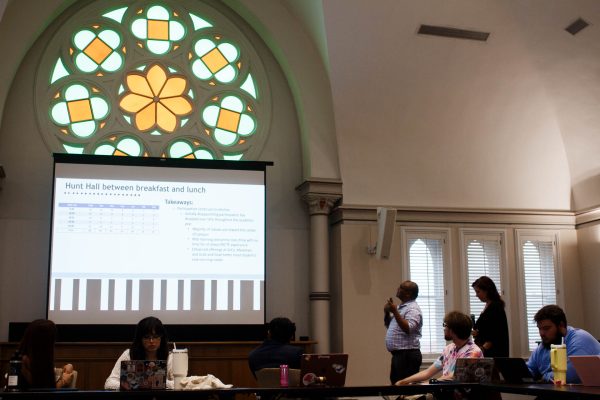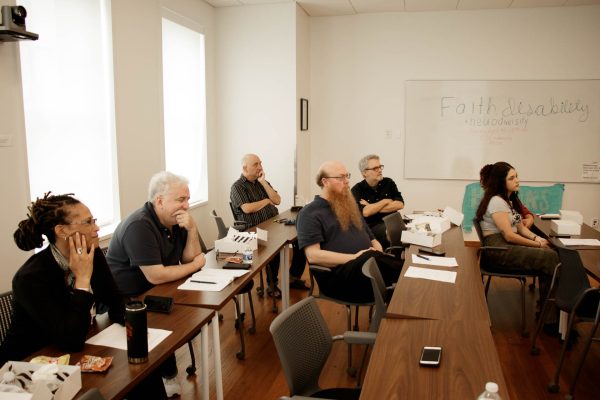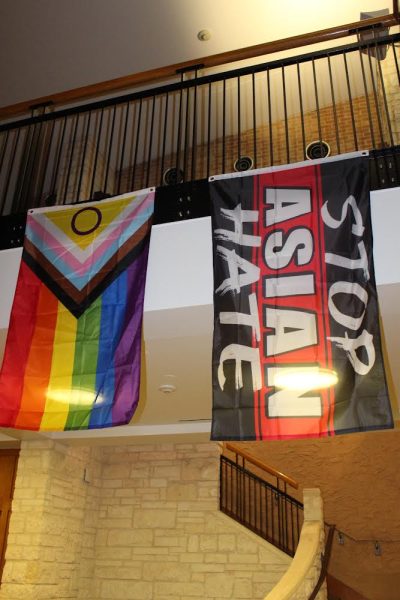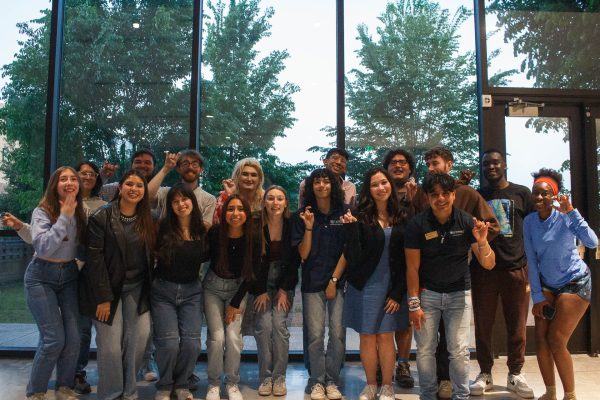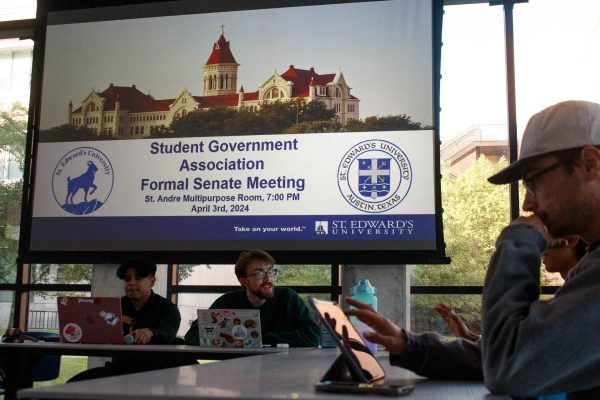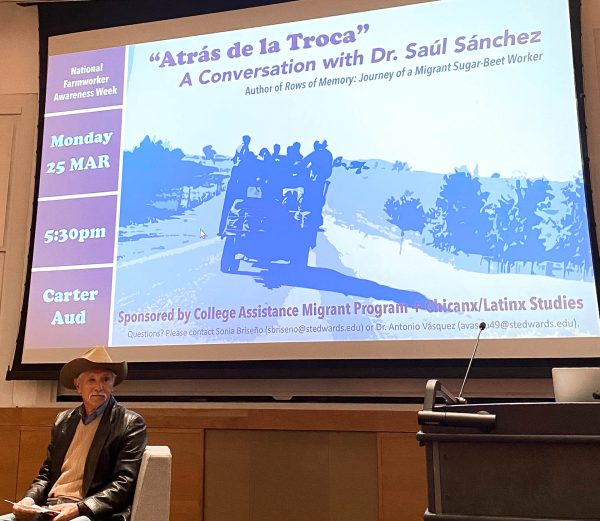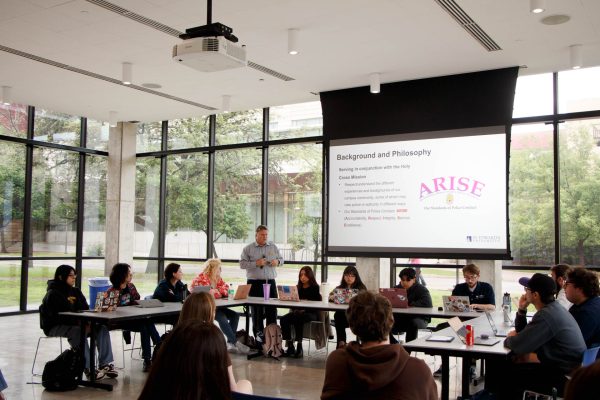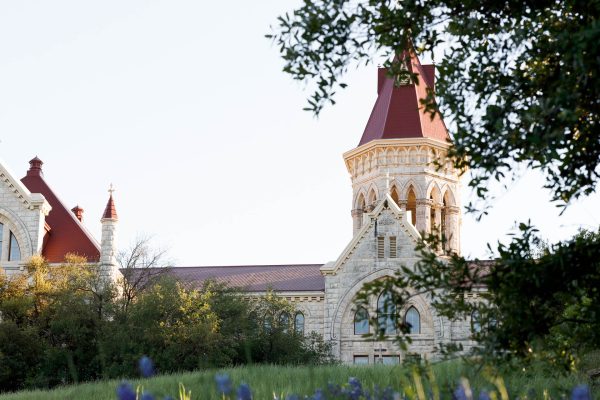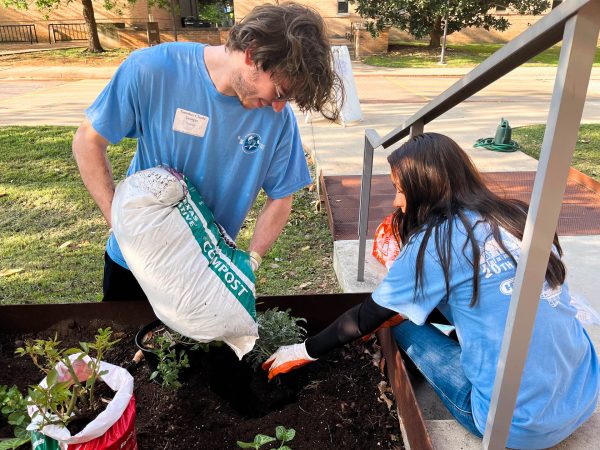Professor Allan Hook dies, leaves behind endowed fund
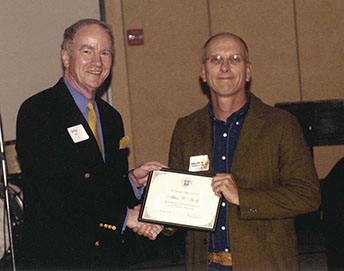
Before his passing, Hook had three insects named after him
Highly regarded wasp specialist, professor and advisor, is remembered and missed.
Allan Hook, professor of biology, was also known as Dr. Hook, Dr. Wasp or just simply, Hook, died on September 3, 2013 at the age of 59. Hook wore many hats at St. Edward’s University: teacher, research advisor and academic director of Wild Basin Wilderness Preserve.
Hook was involved in researching the behavior and biodiversity of solitary wasps, and his work was published on numerous occasions. He discovered two species of wasps and a species of fly which now bear his name: Solerella hooki, Pseudopolis hooki, and Nemomydas hooki (mydas fly).
Hook researched around the world and even planned to travel to Australia for research in 2012, but put that on hold due to his illness.
In his 25 years at St. Edward’s, Hook taught many biology classes. He was also instrumental in persuading the university to collaborate with the Wild Basin Wilderness Preserve, opening up numerous educational opportunities for students.
Hook’s absence has left a void in the biology department. Although other faculty is covering the courses he taught, other areas of Hook’s expertise are not as easy to replicate.
“We miss him professionally because we lack his expertise in invertebrates and in particular with insects and entomology. Obviously, everybody misses him personally because he was so gregarious and so outgoing and charming,” Bill Quinn, natural sciences professor, said.
Another professor praised Hook’s teaching.
“[Hook’s] research was very accessible to young students, like freshmen and sophomores,” Dr. Lisa Goering, associate professor for the school of natural sciences, said.
Goering also stated that students did not need to take higher-level biology classes to make sense of what was happening.
He often mentored students in their own research projects after they had taken an interest in Hook’s work from taking one of his classes. The loss of those opportunities for young students working with Hook is “a big hole,” Goering said. “Beyond being an entomologist, he was sort of a naturalist-someone who knows a whole lot about everything in the world.”
Hook was well-rounded and even knew a bit about baking as well, which was something that students took note of whenever he brought out a fresh batch of his famous mealworm cookies for the School of Natural Science’s annual Christmas party.
Shortly before his passing, Hook established The Dr. Allan W. Hook Endowed Wild Basin Creative Research Fund to assist undergraduate students in performing their research.
Junior biology major James LaManna, was funded this summer by a grant that Hook co-authored with other natural sciences faculty through the W.M. Keck Foundation.
“[It] paid for me to do my research this summer and allowed me to go out there [to Wild Basin] and stay here on campus. I wouldn’t have been able to do the research without the grant,” LaManna said.
Such funds support students like LaManna with their long-term research projects. Although Dr. Hook may not be physically present to assist students with their projects, through these funds he will still be helping students to do research for years to come.
Contributions to the Dr. Allan W. Hook Endowed Wild Basin Creative Research Fund can be made here online.


